Thought this week’s political news was over? Think again. Just one day after the House of Representatives impeached President Donald Trump, seven Democrats squared off in the sixth Democratic Presidential primary debate — the last of 2019.
There were concerns earlier in the week that the debate — co-hosted by PBS NewsHour and Politico and air live from Loyola Marymount University in Los Angeles — would be cancelled after every candidate who qualified threatened to boycott it due to a labor dispute. But an agreement was reached on Tuesday.
This debate was the smallest so far. Only seven candidates qualified: former Vice President Joe Biden, South Bend, Ind., Mayor Pete Buttigieg, Minnesota Sen. Amy Klobuchar, Vermont Sen. Bernie Sanders, billionaire executive Tom Steyer, Massachusetts Sen. Elizabeth Warren and entrepreneur Andrew Yang.
It was also the whitest debate so far. Entrepreneur Andrew Yang is the only person of color on stage — a fact he was asked about directly by the moderators during the debate. New Jersey Sen. Cory Booker, former United States Secretary of Housing and Urban Development Julián Castro and Hawaii Rep. Tulsi Gabbard — all people of color — each hit the required donor threshold but not the polling requirements. California Sen. Kamala Harris also dropped out the race since last debate, after struggled with poor polling and fundraising numbers.
The PBS NewsHour and Politico was moderated by NewsHour anchor and managing editor Judy Woodruff, Politico chief political correspondent Tim Alberta, PBS NewsHour White House correspondent Yamiche Alcindor and PBS NewsHour senior national correspondent Amna Nawaz.
Here are highlights from the December Democratic debate.
Buttigieg and Warren get testy
While speaking about her time on the campaign trail — taking selfies with supporters, hearing stories of people struggling with student debt and medical bills — Sen. Elizabeth Warren took a shot at Mayor Pete Buttigieg when she spoke about raising campaign money.
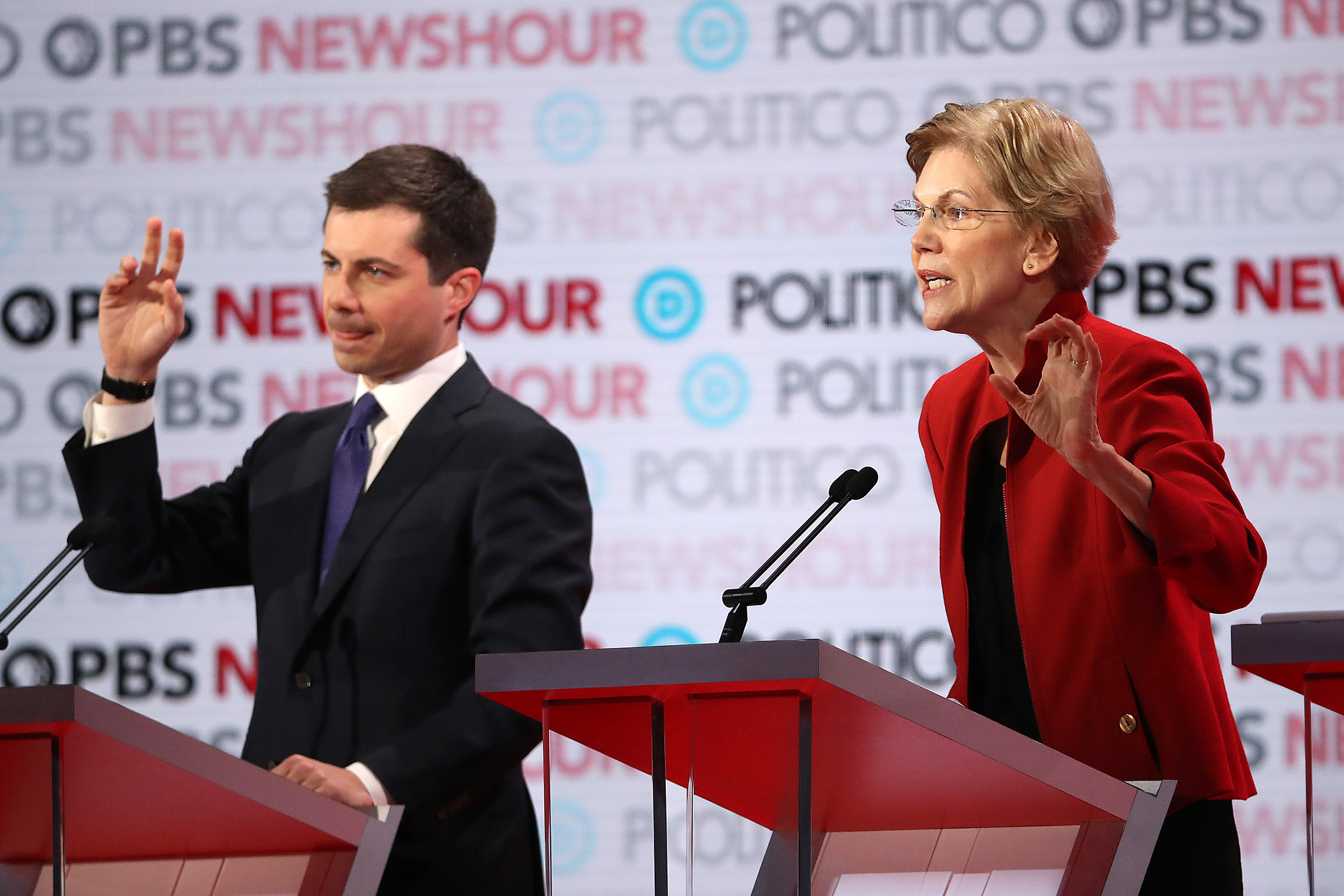
“The Mayor just recently had a fundraiser that was held in a wine cave full of crystals and served $900-a-bottle wine,” she said. “Billionaires in wine caves should not pick the President of the United States.”
Buttigieg defended himself by saying that he was the only one on the stage who is “not a millionaire or a billionaire.” He said that Warren’s net worth is “100 times” his. “This is the problem with issuing purity tests you cannot yourself pass,” he retorted, to a loud reaction from the audience.
The senator did not back down, saying that she does not sell access to her time and that she does not meet behind closed doors with “big-dollar donors.” She also said that if a candidate cannot stand up to the wealthy at this point while campaigning, then how can voters expect them to stand up to them when they’re President.
Buttigieg got the last word in, saying that Senator Warren had previously had “big ticket” fundraisers herself, asking her “Did it corrupt you?” Before Warren could respond, Sen. Amy Klobuchar interjected, saying she did not come here to listen to this argument but to “make a case for progress.” Klobuchar added that she has never been to a wine cave.
Klobuchar and Buttigieg square off
As Mayor Pete Buttigieg has risen in the polls he has faced pointed criticism from several candidates, including Sen. Amy Klobuchar. Buttigieg and Klobuchar, who are arguably competing for the votes of political moderates, clashed over who would be the better candidate hailing from the middle of the country — as well as the importance of experience.
Klobuchar criticized Buttigieg for disparaging candidates’ time as legislators in Washington and various candidates’ accomplishments — including her own three farm bills.
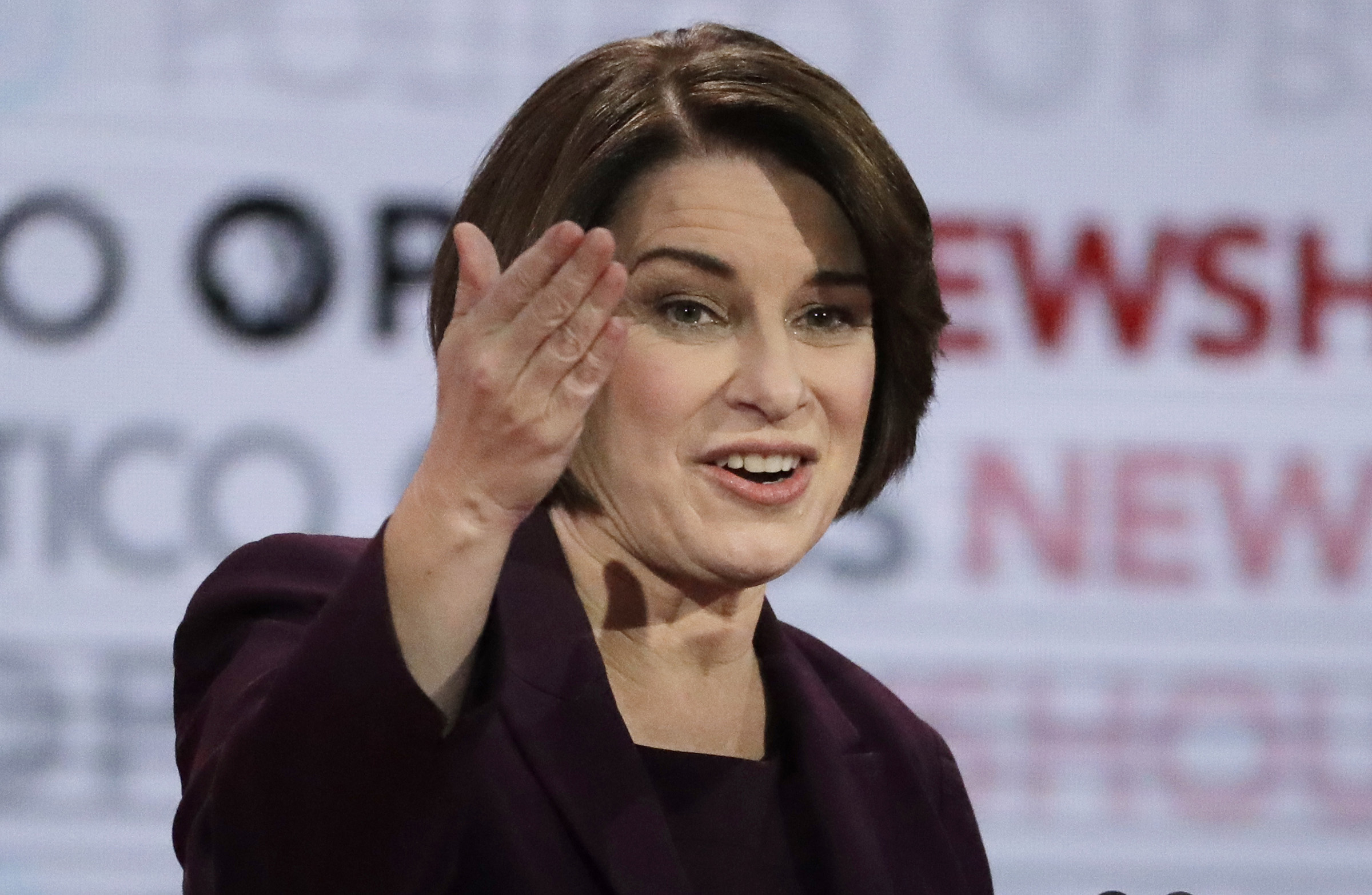
“While you can dismiss committee hearings, I think this experience works. And I have not denigrated your experience as a local official. I have been one,” said Klobuchar. Buttigieg fired back, saying, “You actually did denigrate my experience, Senator, and it was before the break and I was going to let it go, because we’ve got bigger fish to fry here.” Klobuchar retorted: “I don’t think we have bigger fish to fry than picking a president of the United States.”
‘I’d also be the youngest woman ever inaugurated’
There are some significant policy differences among the remaining Democratic candidates, and in recent months observers have pointed to another major difference between them: their ages.
The eldest candidate, Sen. Bernie Sanders, is 78 years old. If former Vice President Biden, 77, or Sen. Elizabeth Warren, 70, were elected, they would each be the oldest candidate ever inaugurated. On the flip side, Pete Buttigieg, 37, would be the youngest. The advanced age of many leading candidates has caused some pundits to question whether someone can be too old to be chosen to run the country.
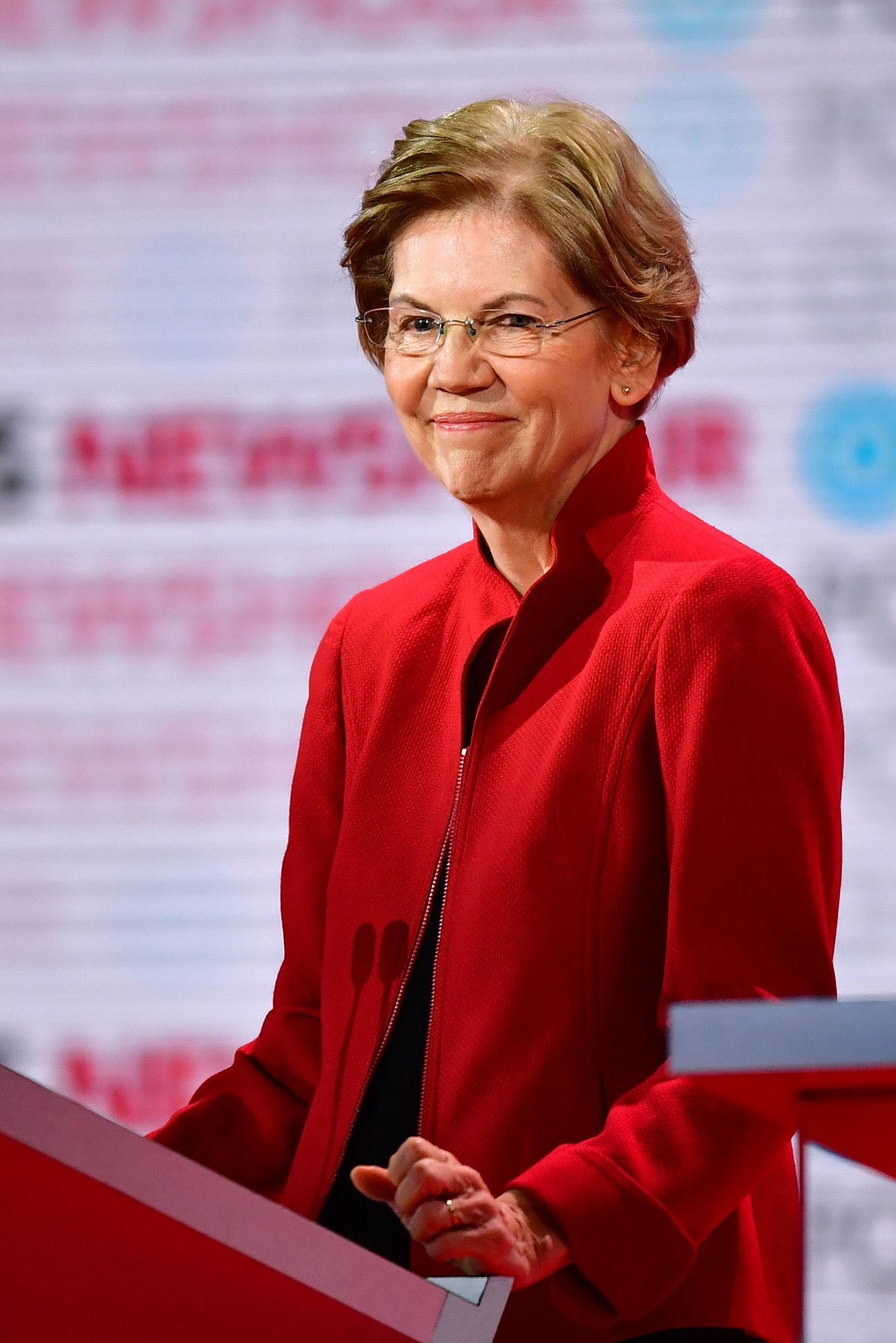
Moderator Tim Alberta asked Warren to address this, saying, “Senator Warren, you would be the oldest President ever inaugurated.”
But Warren has a quick retort: “I’d also be the youngest woman ever inaugurated.” The live audience burst into laughter and applause.
Sanders says he will vote no on new USMCA trade deal
Early in the debate, Sen. Bernie Sanders said that he would not support the new United States–Mexico–Canada Agreement (USMCA) that was passed by the House of Representatives just hours earlier.
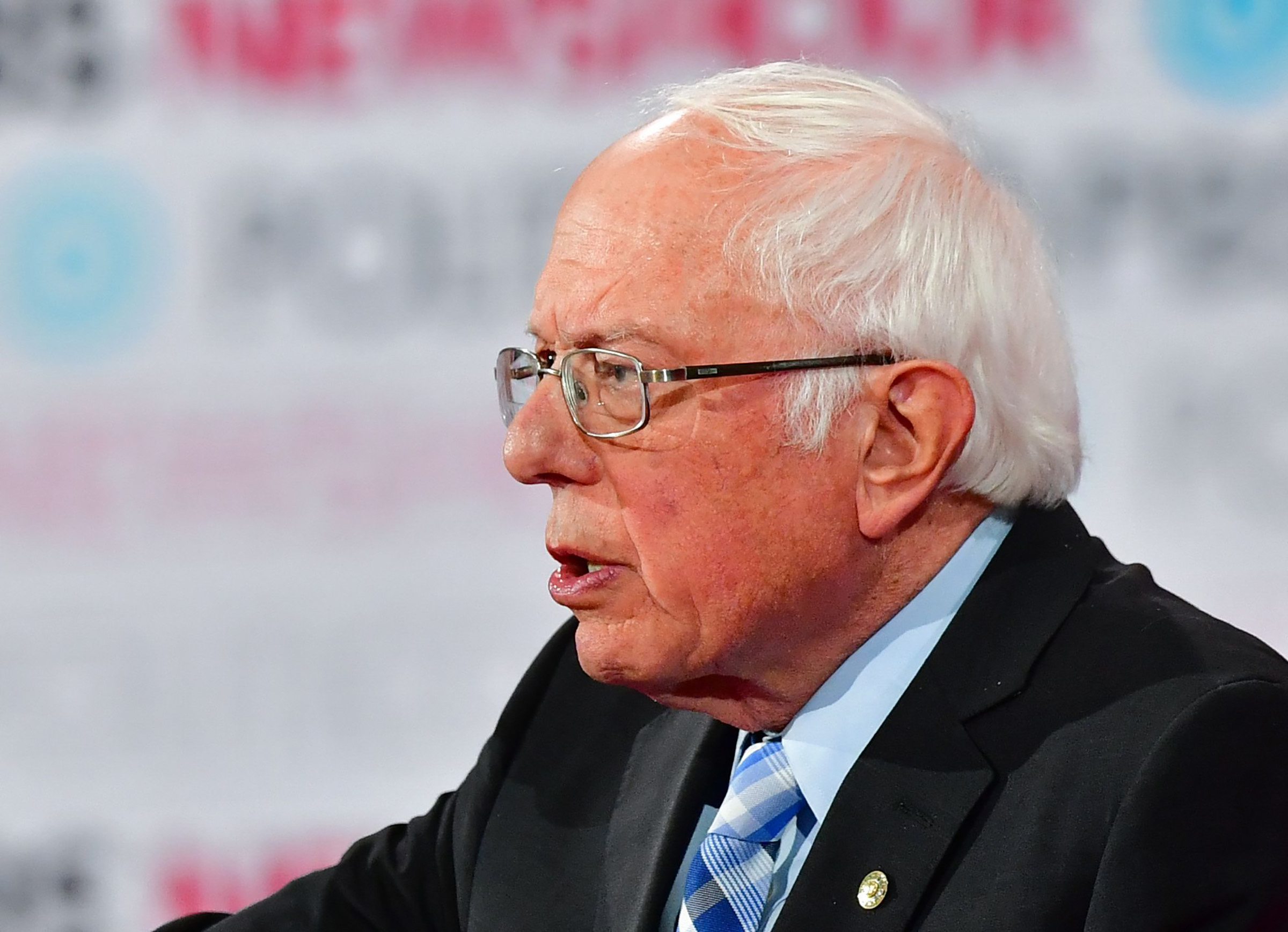
Although the Vermont senator said the agreement makes some “modest improvements over what we have right now” — referring to the North American Free Trade Agreement that President Trump prioritized replacing — Sanders says the new deal will not stop outsourcing and will not stop American companies from moving to Mexico and exploiting manufacturing workers there.
“I don’t agree with the statement that people think that this is going to be a great job creator,” Sanders said.
He added, “What we need is a trade policy that stands up for workers, stands up for farmers and by the way the word ‘climate change’ to the best of my knowledge is not discussed in this new NAFTA agreement at all, which is an outrage.”
Yang and Sanders address diversity among candidates
Entrepreneur Andrew Yang said it was both an honor and a disappointment to be the only candidate of color on stage during the debate.
“I miss Kamala, I miss Cory, though I think Cory will be back,” Yang said, referring to Sen. Kamala Harris, who dropped out of the race earlier this month, and Sen. Cory Booker, who failed to qualify for the debate.
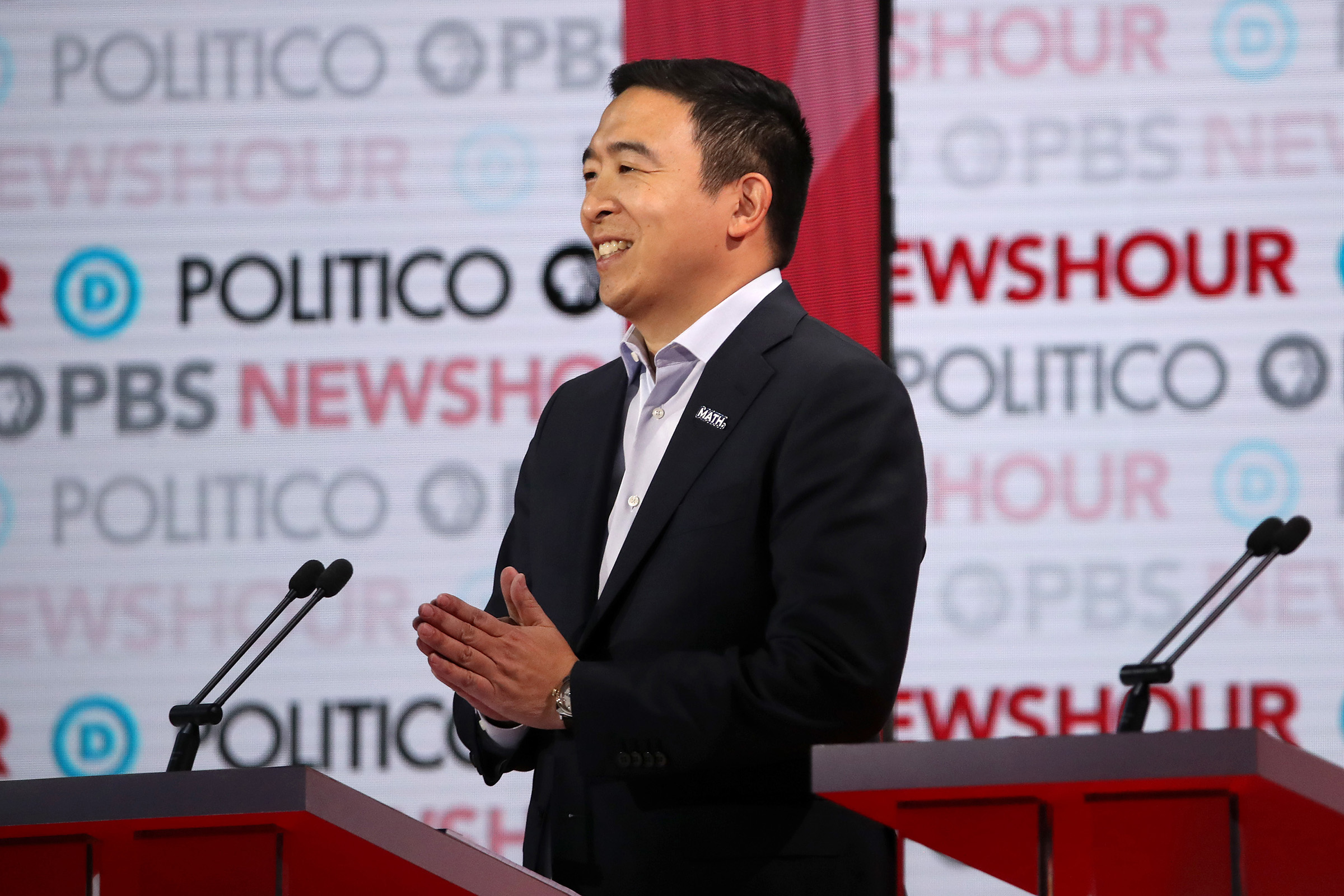
Yang pointed out that he grew up dealing with racial discrimination, but that those in the black and Latino communities have numbers that work against them along with words. He pointed out that the average net worth of a black household is only 10% of a white household, and 12% for Latinos. He also noted that black women are 320% more likely to die from complications during childbirth. “These are the numbers that define race in our country,” Yang said. He also pointed out that less than 5% of people in the country contribute to political campaigns, noting that you need “disposable income” to do so. His solution to close the racial economic gap is to have a guaranteed minimum income of $1,000 per month for all American citizens. “I guarantee if we had a freedom dividend of $1,000 a month, I would not be the only candidate of color on this stage tonight,” he said.
Sen. Bernie Sanders was also asked the same question, and initially tried to pivot the discussion back to climate change. After he was pressed to answer the diversity question, Sanders continued to reference climate change but pointed out that people of color will be the most impacted by the issue. He also called out the criminal justice system for being “racist and broken.”
Candidates immediately address impeachment
With Thursday’s debate taking place just one day after the House of Representatives’ historic vote to impeach President Trump, the issue was the first one the candidates were asked to address.
As the process is expected to move to the Senate for a trial, the group explained the case they would make to urge the American people to back removing President Trump from office. Sen. Amy Klobuchar, who is poised to take part in the Senate trial, argued that there should be more public testimonies, and that if the President was truly innocent he would have permitted more evidence to be released and allowed White House officials testify in Congress.
Billionaire Tom Steyer said that he agreed, arguing that to win the support of the American people, there should be testimony before the American people on television. “If we want the American people to understand what’s going on, we need to have the administrative officials testify on TV so we can judge,” Steyer said. “The court that counts here is the court of public opinion.”
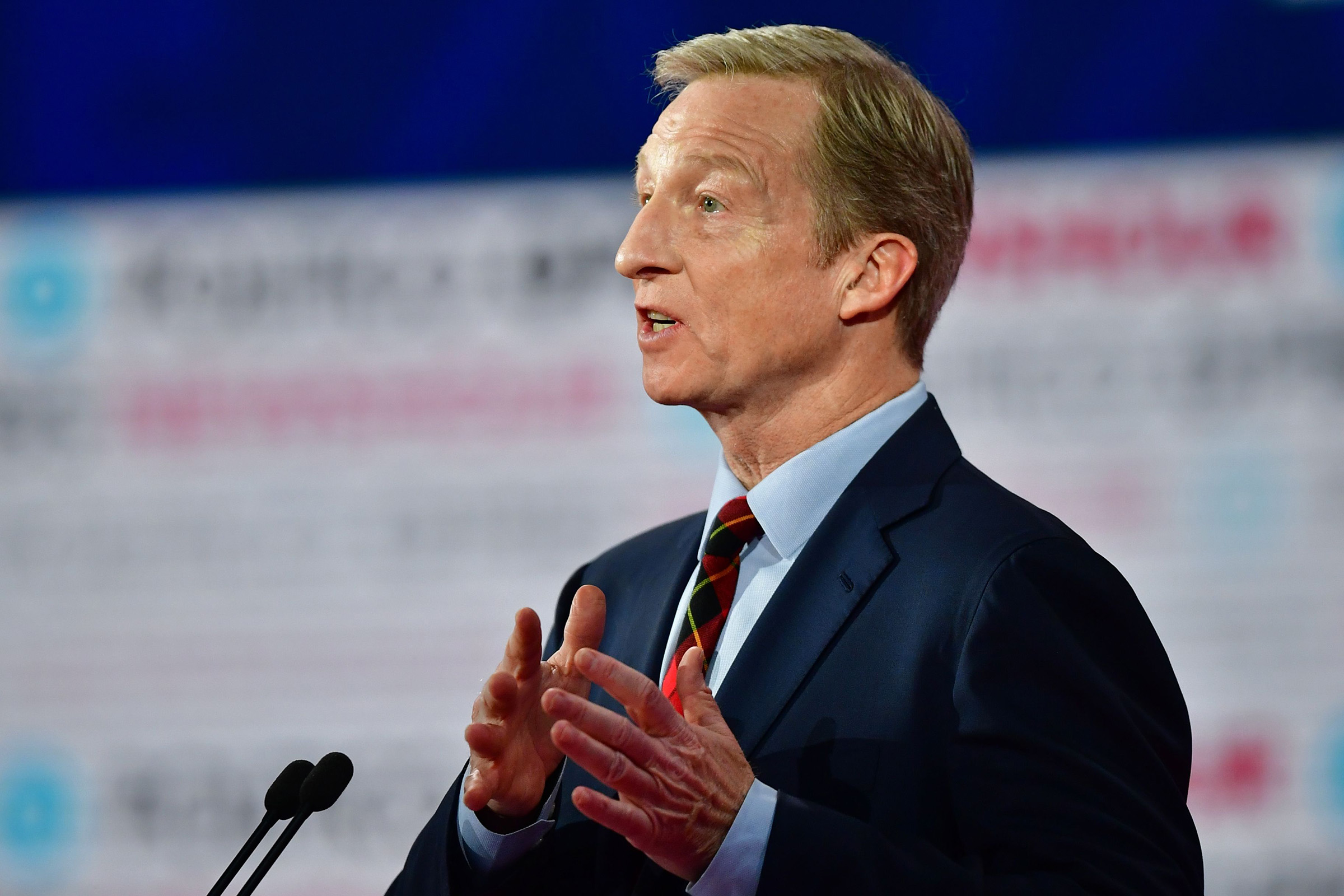
Sen. Elizabeth Warren argued that the President’s conduct has illustrated the consequences of corruption; she argued that while the President said he would “drain the swamp” he instead helped people with money and connections.
“We need a candidate for President who can draw the sharpest distinction between the corruption of the Trump administration and a Democrat who is willing to go out and fight not for the wealthy and the well-connected, but to fight for everyone else,” said Warren.
Yang, meanwhile, countered that the real question the candidates should answer is why Trump won in the first place. For Yang, the answer is the loss of manufacturing jobs. “The more we act that Trump is the cause of all of our problems, the more Americans lose trust that we can actually see what’s going on in our communities and solve those problems,” he said.
Candidates talk tough on China
Democratic candidates had tough words for China—and offered support for Hong Kong protests—at Thursday night’s Democratic presidential primary debate.When asked about how the U.S. should address the Chinese government’s alleged human rights abuses, South Bend, Ind., Mayor Pete Buttigieg brought up the protests in Hong Kong as part of his answer.
“If they perpetrate anything like Tiananmen Square when it comes to Hong Kong, they will be isolated from the free world, and we will lead that isolation diplomatically and economically,” Buttigieg said, referring to the Communist Party’s brutal crackdown on pro-democracy protesters in 1989.
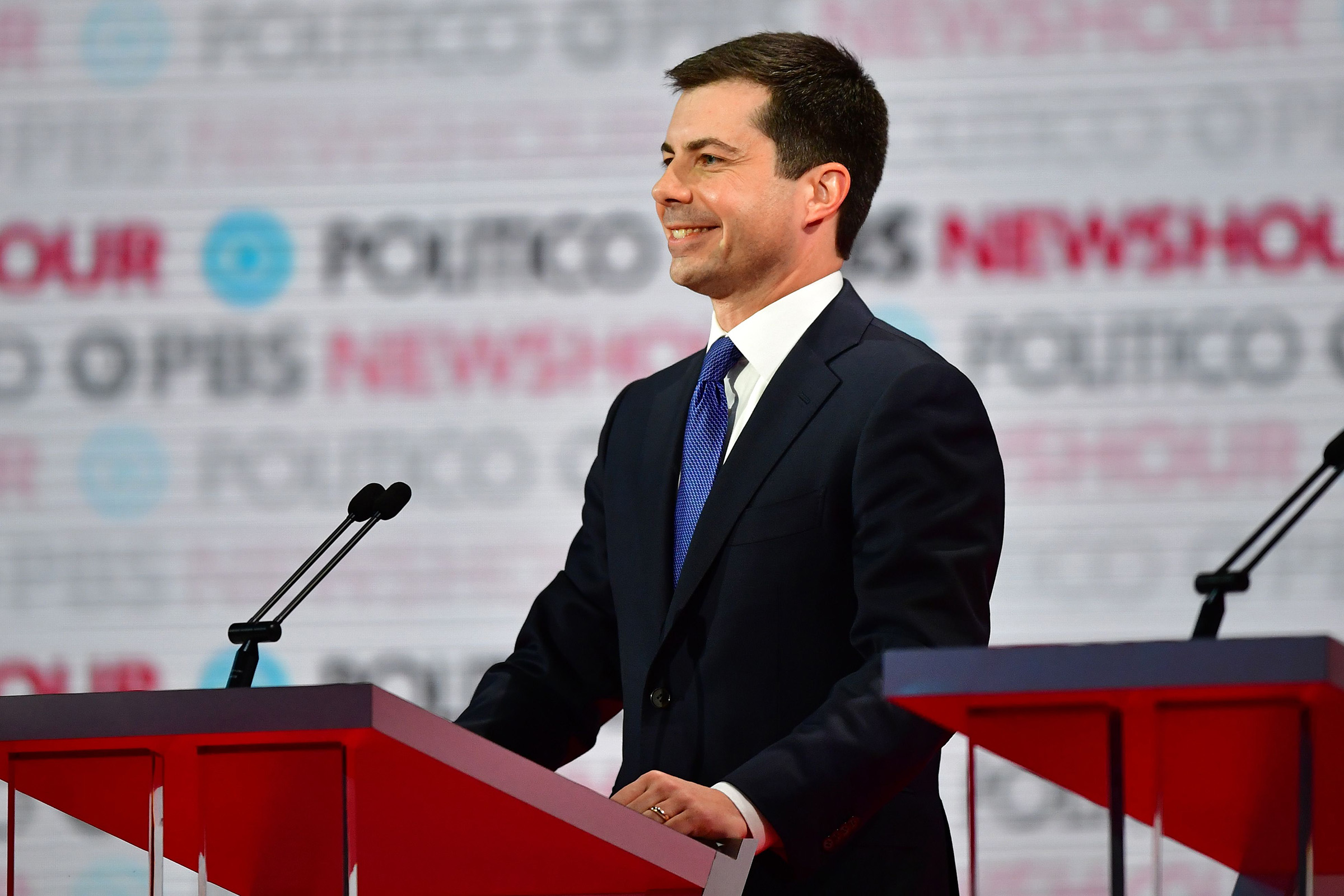
Billionaire Tom Steyer said that the U.S. should treat China like a “frenemy,” but also work to build a “coalition of democracy and freedom loving partners and allies to push back” against the country’s abuses.Former Vice President Joe Biden was asked if military conflict with China is inevitable.“
What we have to make clear is that we are not going to abide by what they’ve done. A million Uihgurs are in concentration camps,” Biden said.
He added that a military build up in Asia might be necessary to stop China.
“We should be moving 60% of our sea power to that part of the world to let, in fact, the Chinese understand that they’re not going to get any further, we are going to be there to protect other folks,” Biden said.
Climate change takes center stage
When the debate shifted to climate change, all of the candidates acknowledged the importance of the issue, with Sen. Amy Klobuchar calling it an “existential crisis.”
Both Sen. Bernie Sanders and billionaire Tom Steyer said they would declare a state of emergency over climate change. Steyer called it his “number-one priority.”
When the candidates were asked about people being displaced due to climate change and having to subsidize those displaced, some of the candidates said it could lead to economic opportunities. Steyer said this would be a chance to create millions of middle-class union jobs: “Our biggest crisis is our biggest opportunity.”
Biden agreed, and added that Americans should be making sure that every future building constructed is energy-contained. He also said that the U.S. should not build any new highways that do not have charging stations for electric vehicles, which could create millions of jobs for those who install them. “There are so many things we can do,” Biden said. “We’re the only country that has taken great, great crisis and turn it into enormous opportunities,” Biden said.
However, Sanders said the question of relocating people misses the mark and that the issue now is just to save the planet. He said the U.S. has to lead the world on this issue and not spend trillions on weapons. Sen. Elizabeth Warren said that we need to stop putting carbon in the air and water, and that we have to “innovate our way out of this problem.” Warren also said the biggest problem with the climate change issue is the politicians themselves, arguing that many continue to say the right things but also continue to take money from the oil industry and continue bowing down to lobbyists, lawyers and bought-and-paid-for experts.“If we don’t attack the corruption first, if we don’t attack the corruption head on, then we are not going to be able to make the changes we need to make,” she said.
Why the debate was almost cancelled
On Friday, all seven Democrats who qualified for the December debate announced they planned to boycott it in support of Unite Here Local 11, a food workers’ union, that was in a labor dispute with Sodexo, the company contracted to operate dining halls at the Loyola Marymount campus.
Warren was the first announce her decision to “not cross the union’s picket line,” and the others swiftly followed.
The Los Angeles Times reports Warren’s move surprised some of the union members. “It was astonishing to me,” Angela Fisher, a Sodexo prep cook at the university, told the Los Angeles Times. “I feel like we’re little people and they’re big people.”
The possibility of the debate’s cancelation threw the DNC into a tailspin. Axios reports that DNC chair Tom Perez, who also served as Secretary of Labor under President Obama, spent over 20 hours on the phone attempting to resolve the dispute.
On Tuesday, Unite Here Local 11 announced they had reached an agreement with Sodexo. The debate could move forward as planned.
More Must-Reads from TIME
- Cybersecurity Experts Are Sounding the Alarm on DOGE
- Meet the 2025 Women of the Year
- The Harsh Truth About Disability Inclusion
- Why Do More Young Adults Have Cancer?
- Colman Domingo Leads With Radical Love
- How to Get Better at Doing Things Alone
- Michelle Zauner Stares Down the Darkness
Write to Madeleine Carlisle at madeleine.carlisle@time.com and Josiah Bates at josiah.bates@time.com